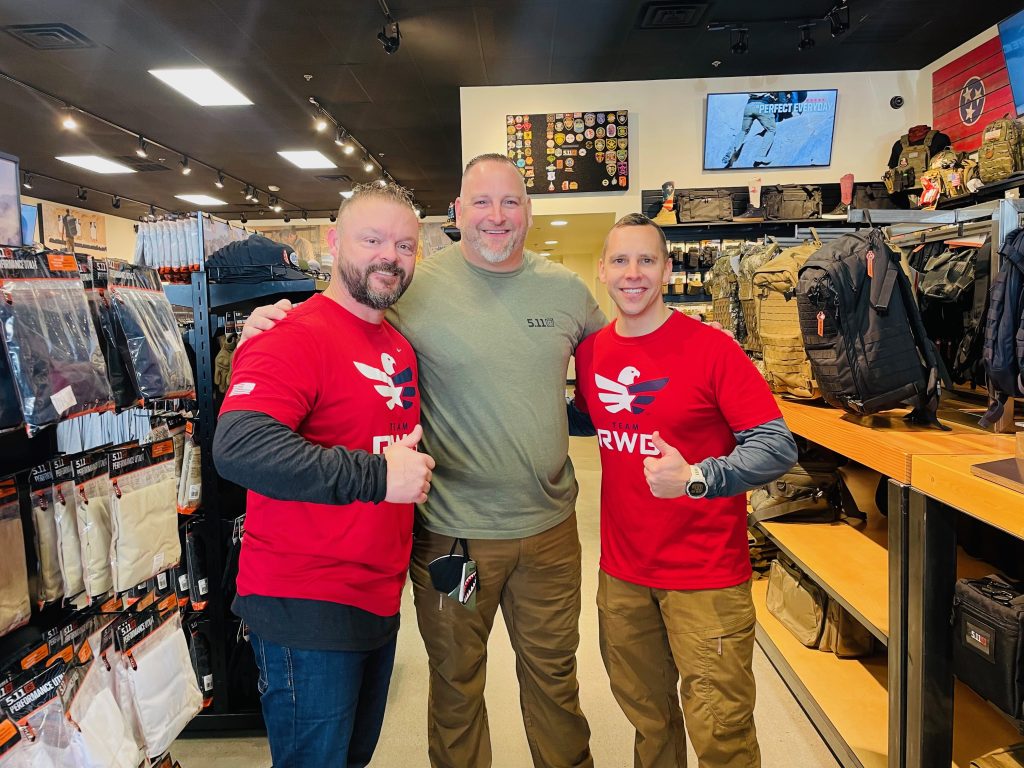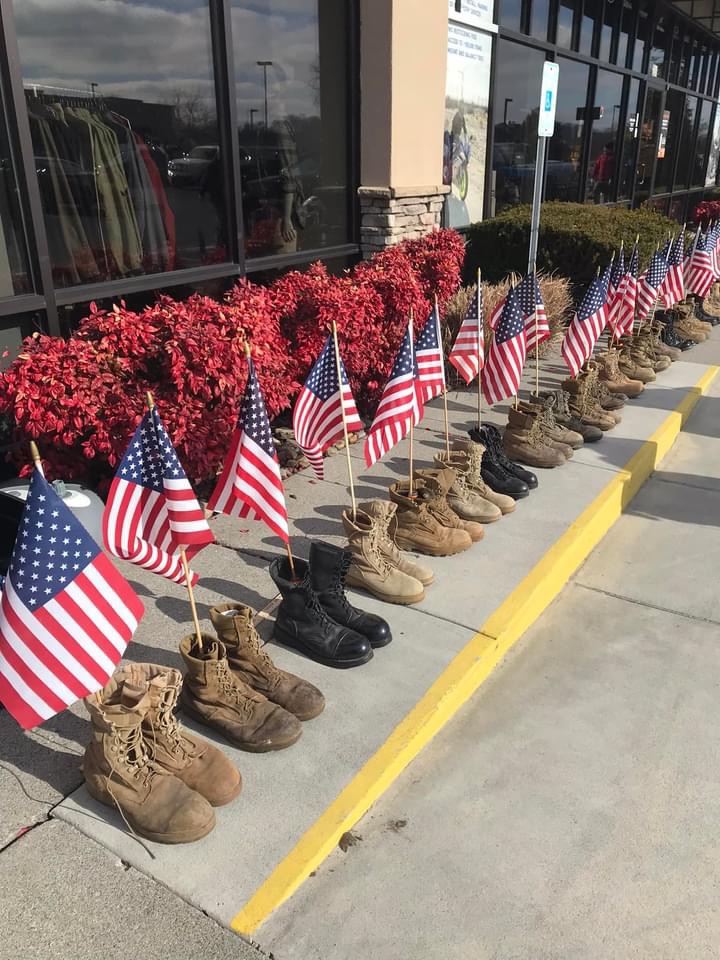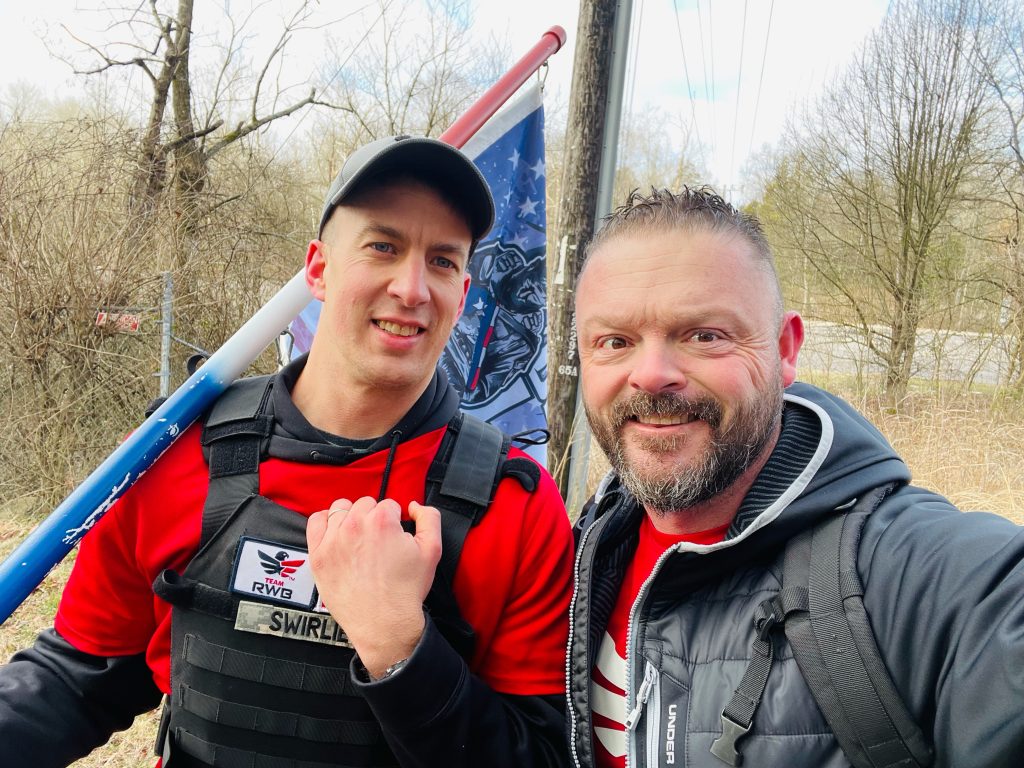Jesse Hawe is taking the fight to the epidemic of suicide among his fellow military veterans
My hope is gone.
I can’t see anything left to live for.
No one understands this battle.
They’ll be better off when I’m gone.
These are among the quiet, desperate words that former enlisted U.S. Marine Jesse Hawe has heard on the other end of the phone when listening to fellow veterans open up about the depths of despair they can’t seem to escape.
Because he is a visible part of Knoxville’s veteran community—and a tireless advocate of efforts to stem the tide of suicides among service vets, having mourned two fellow marines who ended their own lives—Hawe (rhymes with Oorah!) has found himself on the receiving end of such calls. The conversations are often wrenching, but he relishes the opportunity to shine light into dark places.
“It’s the most stressful conversation you’ll ever have with someone,” Hawe says. “I’ve never been in that position, never been suicidal, so it’s hard for me to put myself in those boots exactly, but I talk to them like I’ve known them my entire life. I tell them I care, and I mean it. They might be a complete stranger, but I let them know, ‘I will come over to your house right now. Let’s go to dinner. Let’s get a drink.’”
In his connections with struggling veterans, whether by voice, text, or face-to-face, Hawe often focuses on the future—not a distant time and place, but the immediate future that can seem much more real and within reach. “I’ll say, ‘See you tomorrow at lunch. Come out to our next hike. Stop by our event this weekend. I really look forward to seeing you there.’”

In those subtle, heartfelt turns of phrase, Hawe seeks to reinforce a truth that often feels impossible to glimpse when the fog of internal war is thickest: “You matter, you’re important, and you’ve got a lot to give.” The upshot of what Hawe hopes to communicate is…hope itself—and on the other side of those tough talks, he often gets to see hope rekindled and reignited.
“I see it, and it’s always kind of moving when it happens,” says Hawe of the struggling strangers who become acquaintances and then friends with brighter eyes as they take part in local veterans’ activities and events.
Hawe is among a band of brothers and sisters in the Knoxville area who have united to support those who have served in all branches of the military. The organizations he is part of include the local chapter of Team Red, White & Blue (Team RWB), a national nonprofit whose mission is to enrich veterans’ lives.
“We do these hikes, and [the veterans] look forward to the next one, and the next one,” he says. “You build camaraderie. The best way to help a vet is to be there for that vet. Breaking bread. Putting an arm around them and telling them you love ’em.”
While Hawe wasn’t physically on the battlefield with most of the vets he has gotten to know, he can relate to many of the underlying dynamics and tensions tugging at them.
“We all have the same sense of service and of coming home,” he says. “They feel the disconnect, the loss of purpose, the feeling of, ‘I’m protecting the world’, but then coming back into your civilian life where you don’t feel like you’re doing enough.”
It can be easy to forget just how young America’s servicemen and women are when thrust into life-or-death scenarios and called upon to act decisively. In the same way that returning to one’s college campus in middle age tends to make the students look like babies, those fresh years of 18 to 22 seem jarringly for those in the military.

“At a young age in the service—21, 22—you could have a hundred people counting on you,” Hawe says. “Even at 20, you could be a team leader responsible for the lives of 20 or 30. You have rapport and respect. Then you come back to the civilian world, and suddenly you lose all of that. You return to a 9-to-5 job, and nobody really understands that sense of purpose you gave up.”
Hawe is quick to emphasize that most Americans, and East Tennesseans in particular, “do appreciate service members and the sacrifices they make.” Still, the chasm between everyday life and being in pitched battles can be tough to bridge.
That’s where the friendship, the empathy and the listening ear of fellow veterans can play a huge difference in quite literally saving lives.
Jesse Hawe’s sense of empathy and heart for service took root in the waterfront community of Oswego in north-central New York, a tightknit harbor town on the coast of Lake Ontario. His brother, Dean, six years his elder, “was the first in our family to serve in the Marines. He and I were both Eagle scouts. He was a good role model. I was a young kid with absolutely no direction in life.”
Looking back, Hawe notes that he was less than fully motivated academically. When it came time to apply to college and scholarships, “as much as the school and everybody tried to help me, I didn’t do it. College, at that age, was just not for me.”
He graduated from high school in 1998 and was delivering pizzas as most of his friends left for college that fall. “I looked around my hometown, and everyone was gone.” Hawe’s choice to enlist in the Marines was not difficult—and would yield important character dividends in short order. “The Marines helped give me that push, that sense of doing something bigger than yourself,” he reflects.
Boot Camp was no vacation, but it suited him and his attitude. “I was mentally ready; I had spent a lot of time with Dean,” his Marine elder brother. “I communicated well with my recruiter. They laid out what to expect. You’re always getting yelled at, but I never got ‘in trouble.’ I always looked at push-ups and running as making me stronger. I knew that after camp I would be a different person. I was hoping to look like Mr. Universe, but that didn’t quite happen.”
For the next two years, Hawe drove a commercial ambulance at Marine Corps Base Camp Lejeune, North Carolina, performing some duties similar to a civilian EMT. Heading into the new millennium, he made a surprising choice. “When I got out of that unit, the only option I liked was artillery, so I went from a pretty easy ambulance unit to becoming a grunt in artillery. Everyone thought I was crazy to volunteer for that job.”
Part of the small-town boy’s motivation was to experience the world. “The unit was set to go overseas in about six months; they told me I might get to see 15 or 20 different countries.” In the meantime, “we got to do all of this cool embassy-reinforcement training: jumping out of helicopters, rappelling, urban warfare. Little did I know what was about to happen next.”
What was about to happen was 9/11. Right after the 2001 terrorist attacks, Hawe’s unit was called to New York City to help, but “at the final hour they said we were going overseas” instead. On September 19, he was on a boat headed toward the Middle East. After training in Egypt, Turkey, Spain, and a few other places, Hawe’s unit was among the first into Afghanistan.
“We set up the U.S. Embassy and the airport—the one that was all over the news last fall that got taken over. The embassy had been abandoned since the Cold War. President Reagan’s photo was still on the wall. There was a deck of cards on a table.”
For several months, Hawe and his fellow marines set things up for later engagement before returning home. He served stateside until he left the Corps the following year, just before the U.S. invaded Iraq. He explored serving in the reserves, but the fit wasn’t quite there.
After his service, Hawe “fell into my career doing paintless dent repair” and parlayed that into the Knoxville-area business he now owns, Dents & Detail. “When I got out, I moved to Charlotte. My mom had told me I had to be bold and knock on doors to get a job, so I went from business to business and found a company called Dent Wizard. That’s what got me into this industry.” His current business has two primary locations, in Maryville and west Knoxville, and is growing.
A Knoxville resident since 2003, Hawe and his wife, Amy, live near Farragut with four children in the mix, 17 and younger. Hawe can’t imagine a better place to live, work, and raise a family.
“I just love it here. It has become home, just as much as my hometown in New York—only the weather’s way better down here,” he says with a laugh. In addition to the allure of proximity to the mountains and the draw of the university—“I wasn’t a college fan before, but it’s hard not to get excited about Tennessee football”—Hawe considers Knoxville “a really big town with a small-town feel. You could go to a restaurant on Friday night and a different one on Saturday night, and you might see the same person.”

Of course, part of that possibility comes from Hawe’s active involvement in the community and the number of friends he has made along the way. “Every time we do veteran events, the community rallies around and supports us,” he says.
Hawe became focused on suicide prevention several years ago, in large part because of the two fallen fellow Marines he had known.
“I had talked to each of the guys a couple months prior, and I felt like I didn’t do enough to reach out to them. I regret that. Obviously, once they’re gone there’s nothing you can do, but I could try to make an impact on others. That pushed me to get more involved in our veteran community.”
As a local leader of Team RWB, Hawe organizes events including “hikes, rucks, yoga classes, social events—anything we can do to get vets out of their house.”
It was in this context that the phone calls began. “Last year, I had some guys who needed someone to talk to, and because they see me active in the community, on Facebook, at events, they reached out to me. I would say I’ve been able to help a few of them keep on going.”
As he and fellow veterans work to restore hope in those who are waging an intense battle, Hawe encourages any of them reading these words to “get involved and surround yourself with other veterans. That’s the biggest help. You don’t have to do it on your own.”
Among Team RWB and Hawe’s planned events in 2022 is a hike on May 14, where up to 150 veterans from across the nation are expected to gather. No doubt Hawe will make a number of new friends that weekend—maybe even some who will dial his number to talk about the war within and to receive a welcome dose of hope.
Note: The National Suicide Prevention Lifeline is available to anyone in suicidal crisis or emotional distress. The number is 800-273-8255.

Comments are closed.